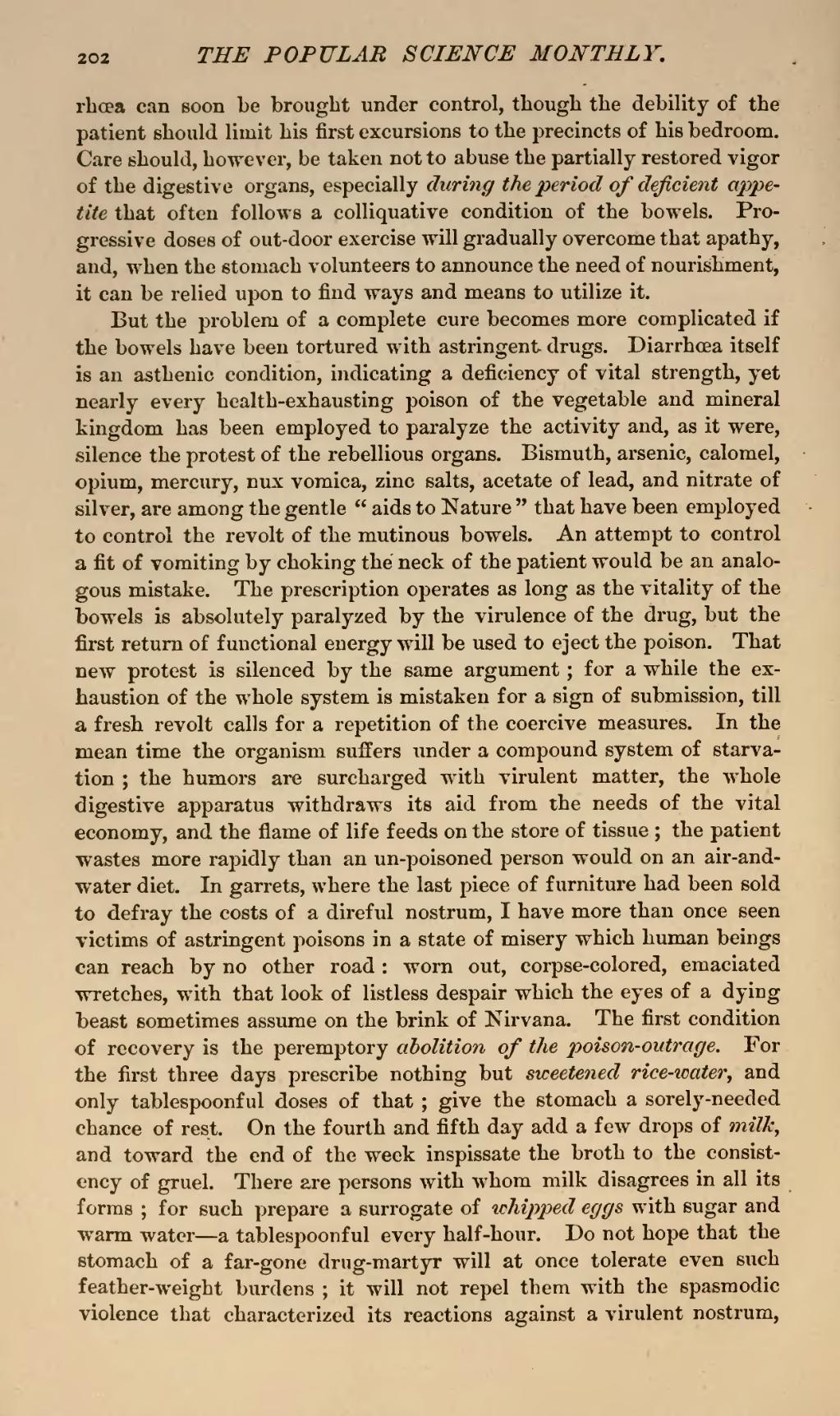rhœa can soon be brought under control, though the debility of the patient should limit his first excursions to the precincts of his bedroom. Care should, however, be taken not to abuse the partially restored vigor of the digestive organs, especially during the period of deficient appetite that often follows a colliquative condition of the bowels. Progressive doses of out-door exercise will gradually overcome that apathy, and, when the stomach volunteers to announce the need of nourishment, it can be relied upon to find ways and means to utilize it.
But the problem of a complete cure becomes more complicated if the bowels have been tortured with astringent drugs. Diarrhœa itself is an asthenic condition, indicating a deficiency of vital strength, yet nearly every health-exhausting poison of the vegetable and mineral kingdom has been employed to paralyze the activity and, as it were, silence the protest of the rebellious organs. Bismuth, arsenic, calomel, opium, mercury, nux vomica, zinc salts, acetate of lead, and nitrate of silver, are among the gentle "aids to Nature" that have been employed to control the revolt of the mutinous bowels. An attempt to control a fit of vomiting by choking the neck of the patient would be an analogous mistake. The prescription operates as long as the vitality of the bowels is absolutely paralyzed by the virulence of the drug, but the first return of functional energy will be used to eject the poison. That new protest is silenced by the same argument; for a while the exhaustion of the whole system is mistaken for a sign of submission, till a fresh revolt calls for a repetition of the coercive measures. In the mean time the organism suffers under a compound system of starvation; the humors are surcharged with virulent matter, the whole digestive apparatus withdraws its aid from the needs of the vital economy, and the flame of life feeds on the store of tissue; the patient wastes more rapidly than an un-poisoned person would on an air-and-water diet. In garrets, where the last piece of furniture had been sold to defray the costs of a direful nostrum, I have more than once seen victims of astringent poisons in a state of misery which human beings can reach by no other road: worn out, corpse-colored, emaciated wretches, with that look of listless despair which the eyes of a dying beast sometimes assume on the brink of Nirvana. The first condition of recovery is the peremptory abolition of the poison-outrage. For the first three days prescribe nothing but sweetened rice-water, and only tablespoonful doses of that; give the stomach a sorely-needed chance of rest. On the fourth and fifth day add a few drops of milk, and toward the end of the week inspissate the broth to the consistency of gruel. There are persons with whom milk disagrees in all its forms; for such prepare a surrogate of whipped eggs with sugar and warm water—a tablespoonful every half-hour. Do not hope that the stomach of a far-gone drug-martyr will at once tolerate even such feather-weight burdens; it will not repel them with the spasmodic violence that characterized its reactions against a virulent nostrum,
